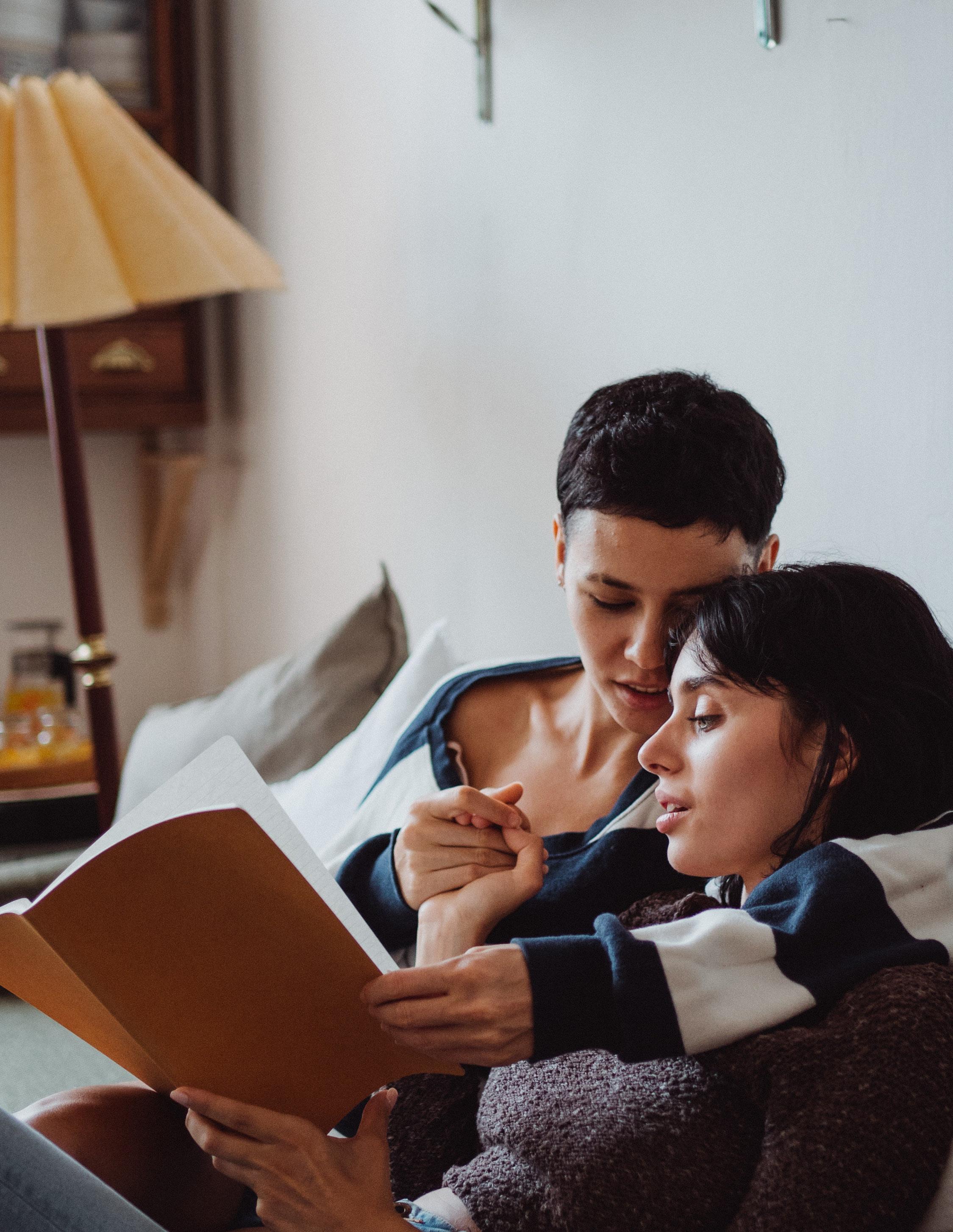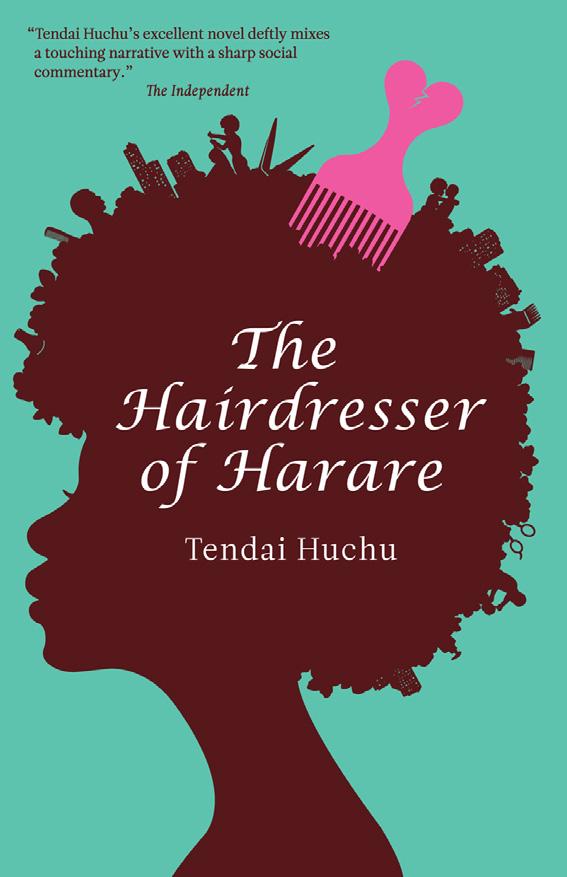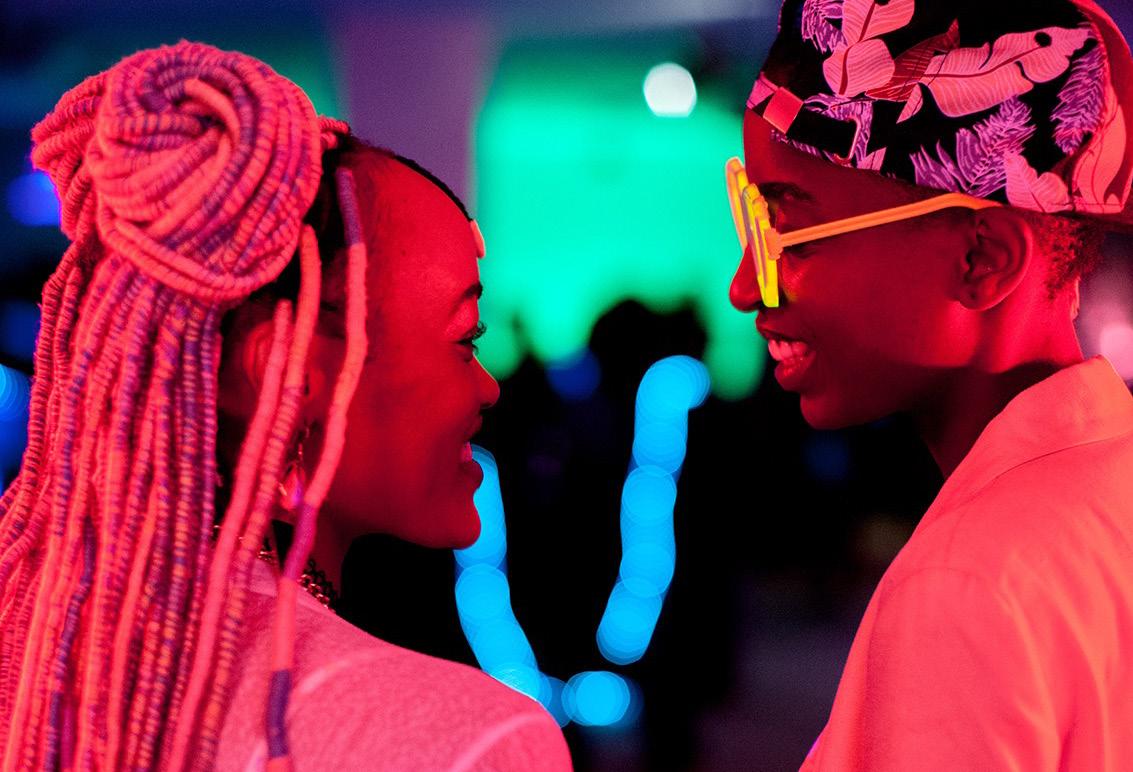
12 minute read
Phumlani shares his story
SEX health advocate Phumlani Kango, who has chronicled his decision to start taking PrEP on social media, shared his story with us.
The 30-year-old gay man, who is from the Eastern Cape, is an advocate with a sharp interest in advancing key population’s rights to access to health care.
Advertisement
He is an ambassador for the #WarmOnPrEP campaign by Pop Inn, which is a project by the Aurum Institute.
NOVEMBER 2017 was when I decided to visit the Health4Men clinic in Greenpoint, Cape Town, to get on pre-exposure prophylaxis (PrEP) and this was by far the best decision I had made for myself.
I made this decision following a lousy experience where I was potentially exposed to HIV after someone removed a condom without my knowledge (stealthing) and I had to get on PrEP, which was a very horrible experience.
Making the decision was easy and informed as I had spoken to a counsellor beforehand.
I got my first month of pills and they treated me well even though I had heard a lot of stories about the side effects of being on the pill.
I didn’t experience anything and my first month went by with no issues. I started reading up more on others’ experiences online and saw that people in South Africa weren’t really clued up on it.
This is what influenced my decision to be open about my journey.
It will be three years in November since I started being on PrEP and I do not regret my decision. Being on PrEP has changed my perspective and views on HIV.
Many of us grew up in the era where HIV was stigmatised, it still is, but not as much as it was in the early 2000s. I now know that people who are HIV+ can have an undetectable viral load meaning they cannot transmit the virus to others if they adhere to the treatment regime well.
PrEP is also stigmatised, but I have not been deterred by the people who say that PrEP encourages us to have unprotected sex and is an excuse for us to be whores.
I am prioritising my sexual health, even if I do decide to have unprotected sex with my partner because I make informed decisions about my sexual health.
My family and friends have been very supportive of my journey and advocacy, to the point where many of them have now considered getting on PrEP.
The three years on PrEP has not been easy because with any medication, there are times where you forget to take it.
However, I’ve been disciplined enough to carry on when I have fallen off the wagon. People fear not being consistent but now there are other ways in which you can take PrEP instead of taking it daily.
There is the 2-1-1 method for people who know when they have sex where they can take two pills 24 hours before, then another one after 24 hours and a last one after 48 hours.
I prefer daily as I have multiple partners, until I settle down (cross fingers that happens), and it’s been easier for me taking it daily

because I am a spontaneous person.
I live a colourful life, as my good friend Olwee always describes himself as “I am one big festival”. I am the same.
There is advancement in the study of PrEP as we have now also heard that there will be a onemonth PrEP injection at some point in the future, even an IUD. Which is why it has been my goal to educate people on PrEP and bring awareness to it.
Some people are opposed to taking pills, so these options will be great.
These advancements will help us tremendously when you consider the infection rate among MSM (men who have sex with men)in South Africa is around 27%. We also have one of the highest HIV infection rates in the world.
Destigmatising PrEP is important which is why I share my journey because I want people to know the truth. | Twitter: @phumlani_PrEP
Queer+ books to read right now
LIAM KARABO JOYCE

AMERICAN novelist George Raymond Martin once said, “A reader lives a thousand lives before he dies. The man who never reads lives only one.”
Martin was spot on.
From reading, I have gone to faraway fantasy lands, countries my passport has no record of entering. I have encountered fascinating characters who have shaped my outlook on many aspects of life. I have even gone inside a Bali prison, thanks to Kathryn Bonella’s Snowing in Bali. And all from the comfort of my home.
That’s the beauty of reading. It takes you on a journey, opens you up to new ideas and worlds, all while learning something.
It is for this very reason we will be suggesting LGBTQI+ stories from around the world in every edition.

THEY CALLED ME QUEER Kim Windvogel and Kelly-Eve Koopman
They Called Me Queer is a wonderful collection of essays written by Africans who self-identify as lesbian, gay, bisexual, transgender, queer, intersex and asexual.
South Africa has become known for its tolerance towards the LGBTQIA+ community. It is one of the most inclusive societies on the continent when it relates to LGBTQIA+ rights. Same-sex sexual activity is legal, unlike in other countries.
Same-sex relationships are recognised, and the protection of LGBTQIA+ rights is based on Section 9 of the Constitution, which forbids discrimination on the basis of sex, gender or sexual orientation, and applies to government and private parties.
The Constitutional Court has stated that the section must also be interpreted as prohibiting discrimination against transgender people. These protections have been reinforced by the jurisprudence of the Constitutional Court and various statutes enacted by Parliament.
And the Alteration of Sex Description and Sex Status Act allows people to apply to have their sex status altered in the population registry, and consequently to receive identity documents and passports indicating their gender identity.
However, we live in a devastatingly segregated and unequal society.
This collection of stories is a testimony to the community and its struggles, but also to its triumphs and the joys.
THE HAIRDRESSER OF Harare by Tendai Huchu
Set in Zimbabwe’s capital city, Harare, the story begins by following a hairdresser named Vimbai, who works at the best salon in town, owned by Mrs Khumalo.
She is known to have an attitude and for doing what she wants, which often results in people not liking her very much.
This comes to a halt when there is a new hairdresser in the salon, Dumisani, and he is incredibly talented.
Although it’s not his intention, he makes Vimbai look bad with her entitled attitude. However, he is a kind man and is very nice to her. He soon becomes the manager, and in a gesture of goodwill, she invites him to live with her. She is strapped for cash and needs extra financial help.
The pair become good friends, and Vimbai finds out that Dumisani was estranged from his family because of his sexuality, and they consider Vimbai a “cure” to his “condition”. They welcome him back, thinking he is straight again.
She does not understand the concept of gay or straight until she reads his diary and finds out that Dumisani is attracted to men. She reacts badly and is rather bigoted towards him.
This is revealed to be because she has reluctantly fallen in love with him.
The book has a number of twists and turns, high-profile politicians, violence and laughter. I relished this – a must-read.

Queer+ shows to stream right now
With representation now more important than it has ever been, here are two fantastic productions to catch that have LGBTQIA+ themes.
LIAM KARABO JOYCE
RAFIKI Showmax

Rafiki (Swahili for “friend”) is a 2018 Kenyan drama directed by Wanuri Kahiu.
It is the story of romance that grows between two young women, Kena and Ziki, amid family and political pressures around LGBT rights in Kenya.
The film had its international premiere in the Un Certain Regard section at the 2018 Cannes Film Festival. It was the first Kenyan film to be screened at the festival.
Kena helps her father John Mwaura run a small convenience store in Nairobi as he campaigns for a local election. Kena lives with her mother, who isn’t really on speaking terms with John.
She starts flirting with Ziki, a neighbourhood girl with colourful hair, who also happens to be the daughter of Peter Okemi, John’s political rival.
Kena and Ziki have a number of romantic dates, and quickly become very close, but there are tensions about displaying their affection in public because homosexuality is illegal in Kenya. Things get complicated for them and their families. Samantha Mugatsia stars as Kena and Sheila Munyiva as Ziki. THE POLITICIAN Netflix
The Politician is an American comedydrama series created by Ryan Murphy, Brad Falchuk and Ian Brennan. The trio also serves as executive producers with Alexis Martin Woodall, Ben Platt and Gwyneth Paltrow.
The series centres on Payton Hobart (Platt), a wealthy native of Santa Barbara. Each season revolves around a different political race his character is involved in.
The first season is set at the fictional Saint Sebastian High School in Santa Barbara, California. Hobart, who has dreamed of being elected president of the US since childhood, is running for student body president against River Barkley.
Hobart, under the direction of his friends McAfee Westbrook, James Sullivan and Alice Charles, chooses Infinity Jackson, a cancer patient and victim of Munchausen by Proxy disorder, to be his vice-president.
Meanwhile, Barkley, under the direction of his girlfriend Astrid Sloan, chooses Skye Leighton, a gender-non-conforming black classmate to be his vice-president.
The second season is set in New York City and Albany, New York. Hobart, now a student at New York University, is running for a seat in the New York State Senate against incumbent Majority leader Dede Standish. Hobart, under the direction of his former classmate Jackson, runs an ecocentric campaign. Standish, under the direction of her conniving campaign manager Hadassah Gold, runs a more conservative one.
Meanwhile, Hobart’s mother, Georgina Hobart, is running for governor of California.

LGBTQIA+ stories

In every edition of Queer+, we will be sharing stories of members of the LGBTQIA+ community and their experiences in South Africa and the world. 27-YEAR-OLD Bandile Sibaya, who is a virtual customer service associate and student from Durban, shared his experiences as a gay man.
I’ve always known that I was different from most kids. I knew from a young age that I was not into girls. The first time I fully understood my sexuality and what it means was when I was in the 9th grade at age 14.
Friends have always been supportive of my sexuality from a time when I was unaware of my sexuality. My family, much like that of every other first-born black gay man, was at first apprehensive and not accepting. It took them two years after me coming out to fully accept and understand what it means to be queer. I am blessed to have people who love and support me.
Were you scared to let others know about your sexuality and/or gender identity?
I wouldn’t say I was scared, but I was hesitant to reveal my sexuality when I was younger.
It was in primary school. At the time I perceived it as just bullying. I was called derogatory names because of the way I walked and the way I spoke.
I grew up in an area that was very open-minded, and few (if any) people were homophobic.
What is it currently like for you?
It’s much the same, members of the LGBTQIA+ community that are lesbian, bisexual and gay are more well-received in the community.
How would you describe your overall experience as part of the LGBTQI community?
Good and bad. We’re fortunate to have a Constitution that protects us as queer people. There’s always going to be the occasional bigotry and hatred. I’ve experienced situations that made me fear for my life simply because of my sexuality. I’ve also experienced situations that have brought me immense joy because of my sexuality.
ROMAN Johaness is a 23-year-old Cape Town resident who works in retail.
What is your gender identity and sexuality ?
When I first came out I had identified myself as a gay man for many years, but of course, I had a feminine side to me, and later in life, I would identify as gender-fluid because I was still finding myself as a person. Then last year, I found who I really am, and I am a proud trans woman and I’m enjoying my journey thus far.
I always knew from a young age that I was different. I never wanted to do the norm and I just never knew what it’s called. But later on, I started to put the pieces together and it started making sense to me. I would always wonder “why am I so different?” and why I never showed interest in the things the boys would do, but more interest in the girl things.
Growing up, it was hard for me because I came from a Christian background and I was adopted.
So I had to deal with trying not to be myself because my parents are pastors and what would people say and at the same time trying to figure out why I was adopted as a child.
What was the response like from your family and friends?
When I came out to my parents, it wasn’t the best experience because I was told that this isn’t right and it’s a sin and I have a demon in me. I was so lucky and grateful that I had friends I could speak to. My friends are still open-minded and love me the way I am. Of course, I was kicked out of my parents’ house when I started to work because they never approved of my life and who I was.
Tell us about the first time you experienced homophobia/transphobia/biphobia or queerphobia?
I have always experienced homophobia in my life, from my mom to people in the street.
What was it like being part of the LGBTQI community in the area you lived in?
I haven’t experienced anything weird besides people calling me names or trying to make funny gestures when seeing me. I am happy with where I live now and I am enjoying my new journey as a transwoman and having people around me that support me.







